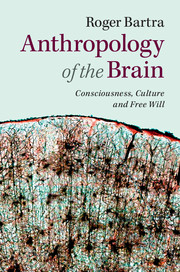16 - An experiment with freedom
Published online by Cambridge University Press: 05 June 2014
Summary
It is a curious paradox that the neurophysiologist whose experiments are the most widely cited for sustaining determinist theses believed in the existence of free will. Benjamin Libet (1916–2007) was a scientist who became known in the United States in the 1970s for his experiments showing that even when a tactile sensation takes half a second to be consciously reported by the person, it is subjectively perceived as if it had arrived exactly at the same moment. Libet later installed very precise recording instruments in his laboratory for the purpose of measuring the time that passes from the moment a person decides to act (for example, move a finger) and the instant in which it is actually done. He used an electroencephalograph device to record the cerebral cortex activity and an oscilloscope to time the events. It should be mentioned that some ten years before, two German researchers from the University of Freiburg, H. H. Kornhuber and L. Deecke, had discovered what they called Bereitschaftspotential, which is the preparation potential that appears in the electroencephalogram moments before a voluntary movement has occurred. Libet’s experiment showed that this electric preparation potential happened before the subjects manifested their intention to perform an action, but after their having consciously decided to do it. He also showed that a voluntary decision could abort the movement, even when the preparation potential had been triggered. More concretely, Libet’s experiments indicated that the electric changes that prepare an action in the brain begin some 550 milliseconds before the action occurs. The subjects notice the intention to act some 350 to 400 milliseconds after the preparation potential begins, but 200 milliseconds before the motor action occurs. Libet came to the conclusion that the intentional action began unconsciously. But he also observed that consciousness can control the process result through a kind of vetoing power: it could inhibit the mechanisms that lead to the action, even when they had already begun unconsciously.
- Type
- Chapter
- Information
- Anthropology of the BrainConsciousness, Culture, and Free Will, pp. 125 - 131Publisher: Cambridge University PressPrint publication year: 2014



